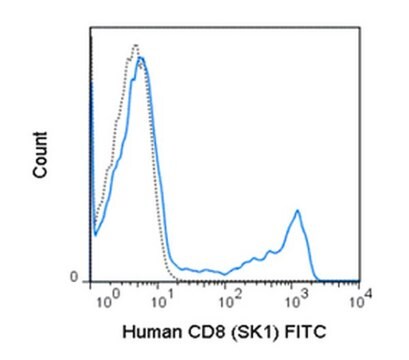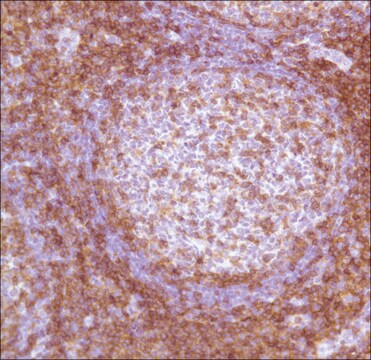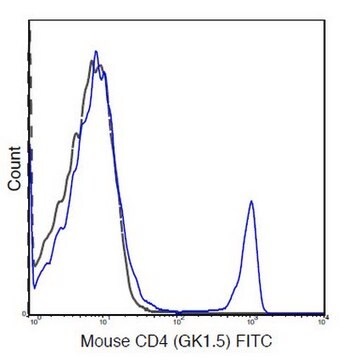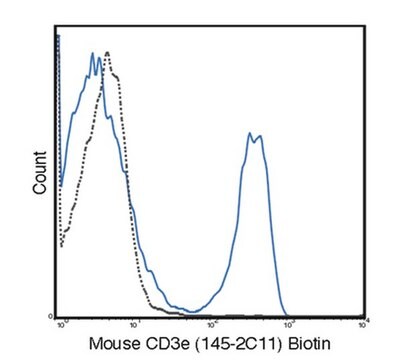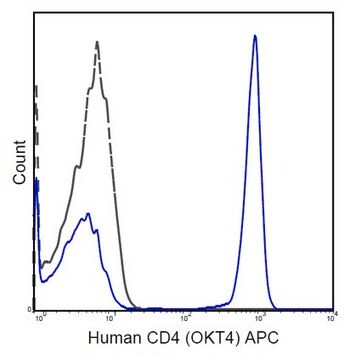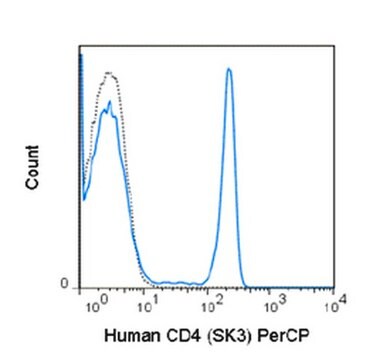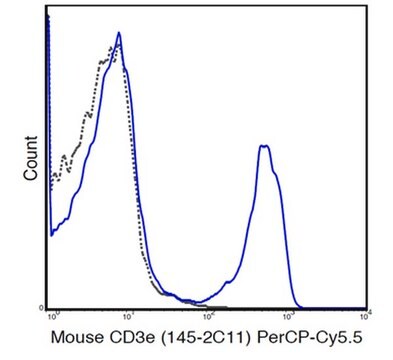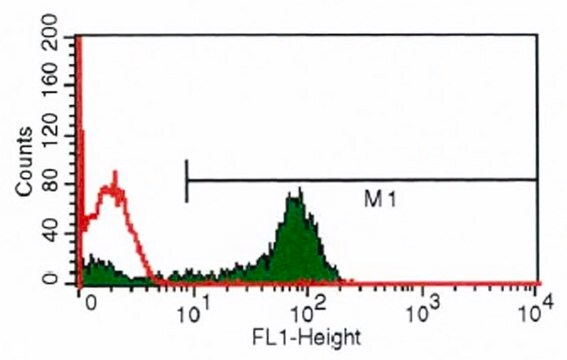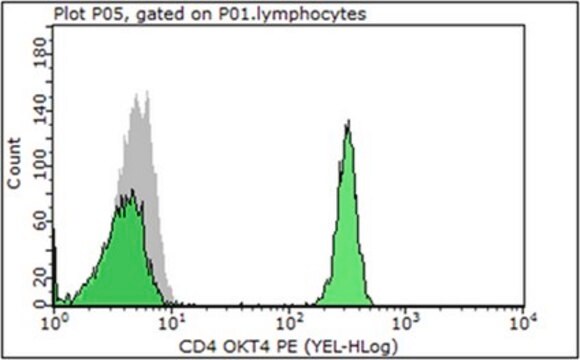MABF172C
Anti-CD4 (human), violetFluor® 450, clone RPA-T4 Antibody
clone RPA-T4, from mouse, violetFluor® 450
Sinónimos:
T-cell surface glycoprotein CD4, T-cell surface antigen T4/Leu-3, CD antigen CD4, CD4
About This Item
Productos recomendados
origen biológico
mouse
Nivel de calidad
conjugado
violetFluor® 450
forma del anticuerpo
purified antibody
tipo de anticuerpo
primary antibodies
clon
RPA-T4, monoclonal
reactividad de especies
human
técnicas
flow cytometry: suitable
Nº de acceso UniProt
modificación del objetivo postraduccional
unmodified
Información sobre el gen
human ... CD4(920)
Descripción general
Inmunógeno
Aplicación
Inflammation & Immunology
Immunoglobulins & Immunology
Calidad
Flow Cytometry Analysis: 0.25 μg from a representative lot detected CD4 in one million human peripheral blood lymphocytes.
Forma física
Almacenamiento y estabilidad
Note: It is recommended to store the product undiluted at 2-8°C and protected from prolonged exposure to light. Do not freeze.
Otras notas
Información legal
Cláusula de descargo de responsabilidad
¿No encuentra el producto adecuado?
Pruebe nuestro Herramienta de selección de productos.
Código de clase de almacenamiento
12 - Non Combustible Liquids
Clase de riesgo para el agua (WGK)
nwg
Certificados de análisis (COA)
Busque Certificados de análisis (COA) introduciendo el número de lote del producto. Los números de lote se encuentran en la etiqueta del producto después de las palabras «Lot» o «Batch»
¿Ya tiene este producto?
Encuentre la documentación para los productos que ha comprado recientemente en la Biblioteca de documentos.
Nuestro equipo de científicos tiene experiencia en todas las áreas de investigación: Ciencias de la vida, Ciencia de los materiales, Síntesis química, Cromatografía, Analítica y muchas otras.
Póngase en contacto con el Servicio técnico